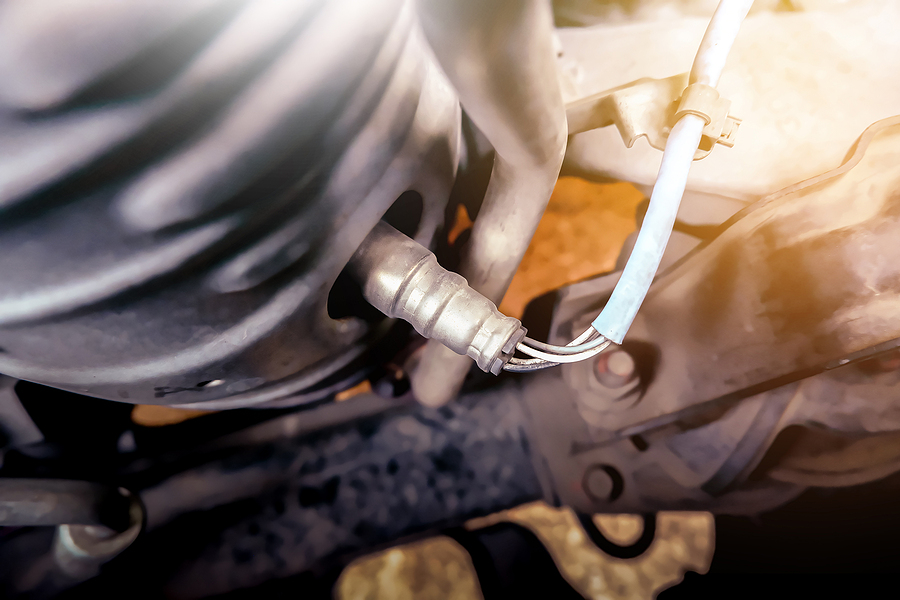Welcome to our comprehensive guide on navigating car sensor issues. Automotive sensors play a vital role in your car’s performance, ensuring that everything runs smoothly and efficiently. When they falter, they can trigger a ripple of problems, affecting everything from fuel efficiency to emission control. They might seem complex, but with a little knowledge and some handy tips, you can avoid hefty car sensor repair costs and unnecessary headaches.
Whether it’s an O2 sensor, mass air flow (MAF), or coolant temperature sensor giving you trouble, we’ve got you covered. So, buckle up and prepare for a deep dive into the world of car sensors.

Understanding Car Sensors
Before we dive into the specific types of car sensors, let’s first understand what they are and how they work. In simple terms, a sensor is a device that measures physical quantities and converts them into signals that can be read and interpreted by your vehicle’s computer system. These signals help the computer make adjustments to various systems in your vehicle, ensuring optimal performance.
Common Types of Automotive Sensors:
1. O2 Sensors
Also known as oxygen sensors, these are one of the most crucial sensors in your vehicle’s emission control system. They monitor the amount of oxygen in the exhaust and send signals to adjust the air-fuel mixture accordingly. A faulty O2 sensor can lead to poor fuel efficiency and increased emissions, resulting in a failed emission test.
2. Mass Air Flow (MAF) Sensors
As the name suggests, MAF sensors measure the amount of air entering your car’s engine and send this information to the computer to adjust fuel delivery. A dirty or malfunctioning MAF sensor can cause problems such as rough idling, stalling, and decreased performance.
3. Engine Oil Level and Pressure Sensors
These sensors monitor the level and pressure of engine oil, ensuring that your vehicle’s engine is properly lubricated. A faulty sensor can lead to low oil levels or incorrect pressure readings, which can cause engine damage if not addressed promptly.
4. Coolant Temperature and Level Sensors
Coolant temperature sensors measure the temperature of the engine coolant and send signals to adjust the cooling system accordingly. Coolant level sensors alert you when there is a loss of coolant, preventing potential overheating and engine damage.
5. Air Intake Temperature Sensors
Air intake temperature sensors measure the temperature of the air entering your car’s engine, allowing for proper fuel delivery and combustion. A faulty sensor can lead to incorrect air-fuel ratios, causing engine performance issues.
6. Manifold Absolute Pressure (MAP) Sensors
MAP sensors measure the pressure in the intake manifold and send signals to adjust fuel delivery accordingly. A malfunctioning MAP sensor can cause issues such as rough idling, decreased fuel efficiency, and increased emissions.
Tips for Navigating Automotive Sensor Issues
Now that we’ve covered the common types of vehicular sensors, here are some tips to help you navigate any issues that may arise:
Pay attention to warning lights: Most modern cars have a dashboard warning light that indicates a problem with one of the sensors. If you see this light, it’s essential to get your car checked by a professional as soon as possible to avoid further damage.
Stay on top of maintenance: Regularly scheduled maintenance can help detect any potential sensor issues before they become bigger problems. Make sure to follow your manufacturer’s recommended maintenance schedule and have your car inspected by a trusted mechanic regularly.
Keep your sensors clean: Dirt, grime, and debris can cause sensors to malfunction. Regularly cleaning them can help prevent issues and increase their lifespan. Check your owner’s manual for the appropriate engine cleaning methods for each sensor.
Consult a professional: While some car sensor issues may be easy to fix on your own, it’s always best to consult a professional mechanic if you’re not sure how to proceed or don’t have the necessary tools. This can save you time, money, and potential headaches in the long run.
Car Sensor Repair Costs
The cost of repairing or replacing a car sensor can vary greatly depending on the type of sensor, the make and model of your car, and labor costs. Generally, expect to pay anywhere from $200 to $500 for a single sensor replacement. However, if multiple sensors need to be replaced, the cost can quickly add up.
Conclusion
Car sensors play a crucial role in your vehicle’s performance and should not be ignored if issues arise. By understanding how they work and following our tips, you can save yourself from costly repairs and ensure that your car runs smoothly for years to come. Remember to always consult a professional if you’re unsure about any sensor-related issues and stay on top of regular maintenance to prevent problems in the first place.
Looking for affordable and speedy assistance with some unexpected car problems? Contact Northeast Auto Service at 317-475-1846 for professional automotive service and repair in Indianapolis, Indiana. Request a free estimate, or schedule service, today.
Related Posts:
How to Diagnose and Solve Common Auto Electrical Problems
10 Common Reasons Your Check Engine Light is On
How to Tell If It’s Time for an Oil Change: 10 Warning Signs
